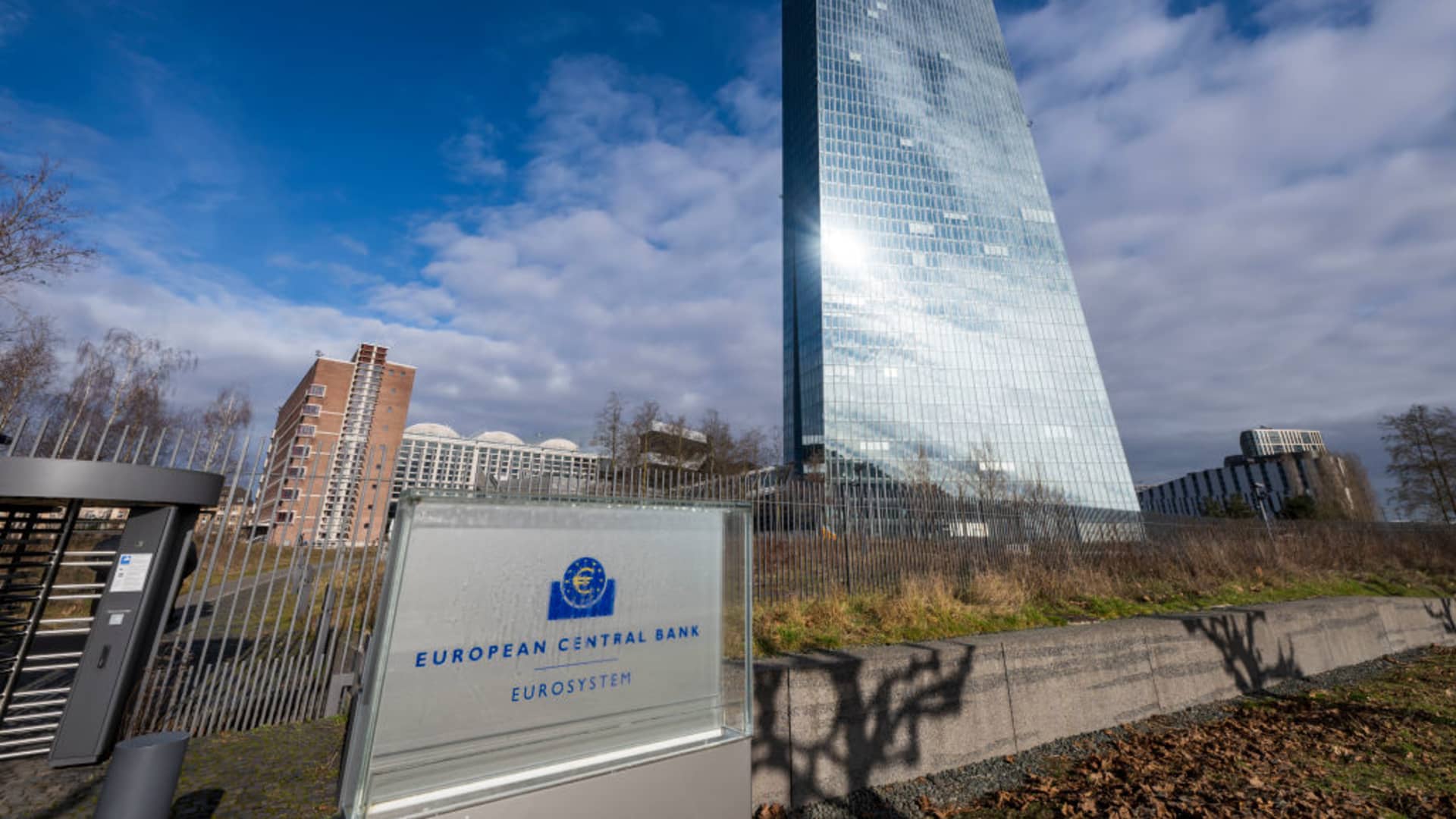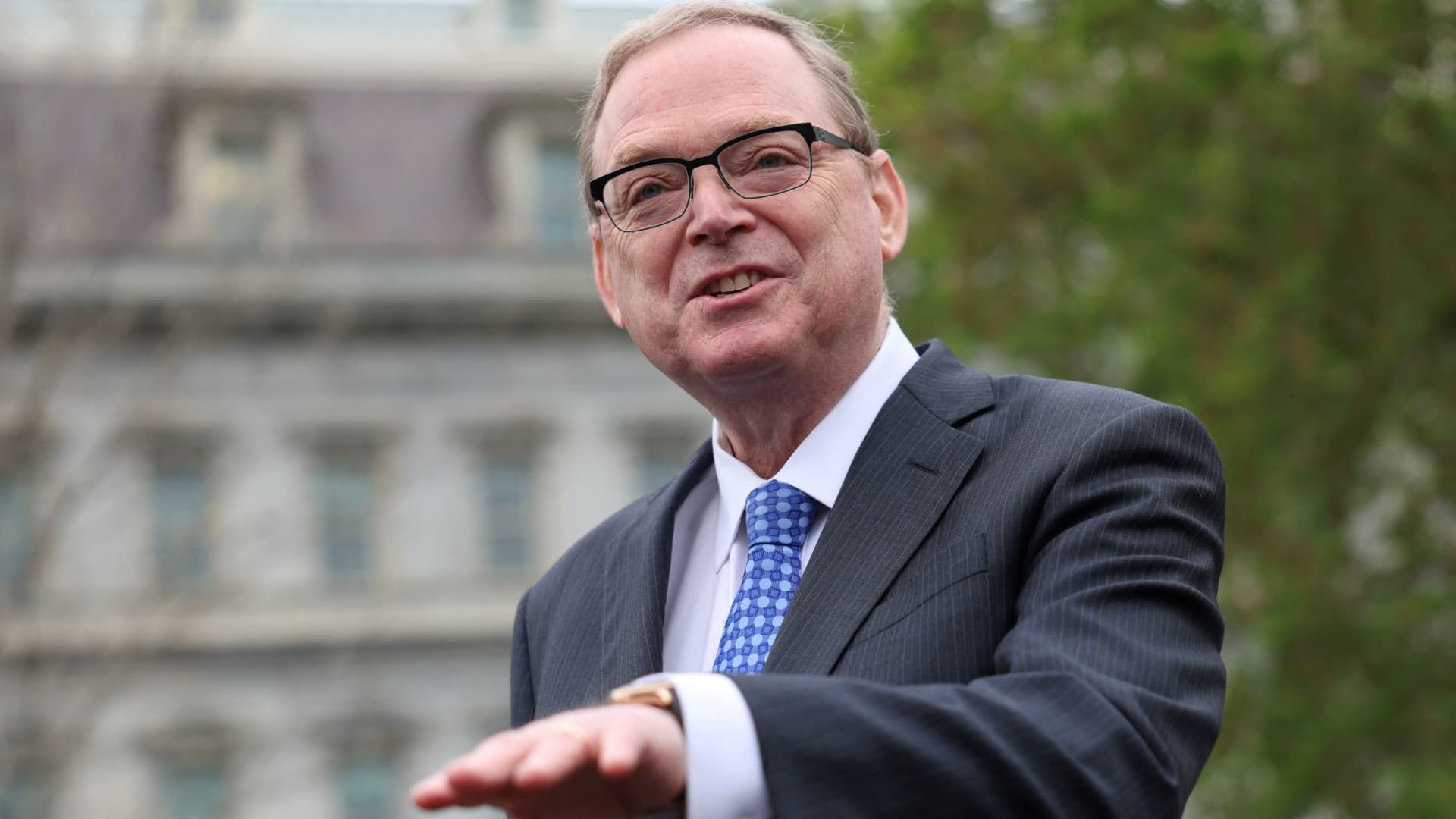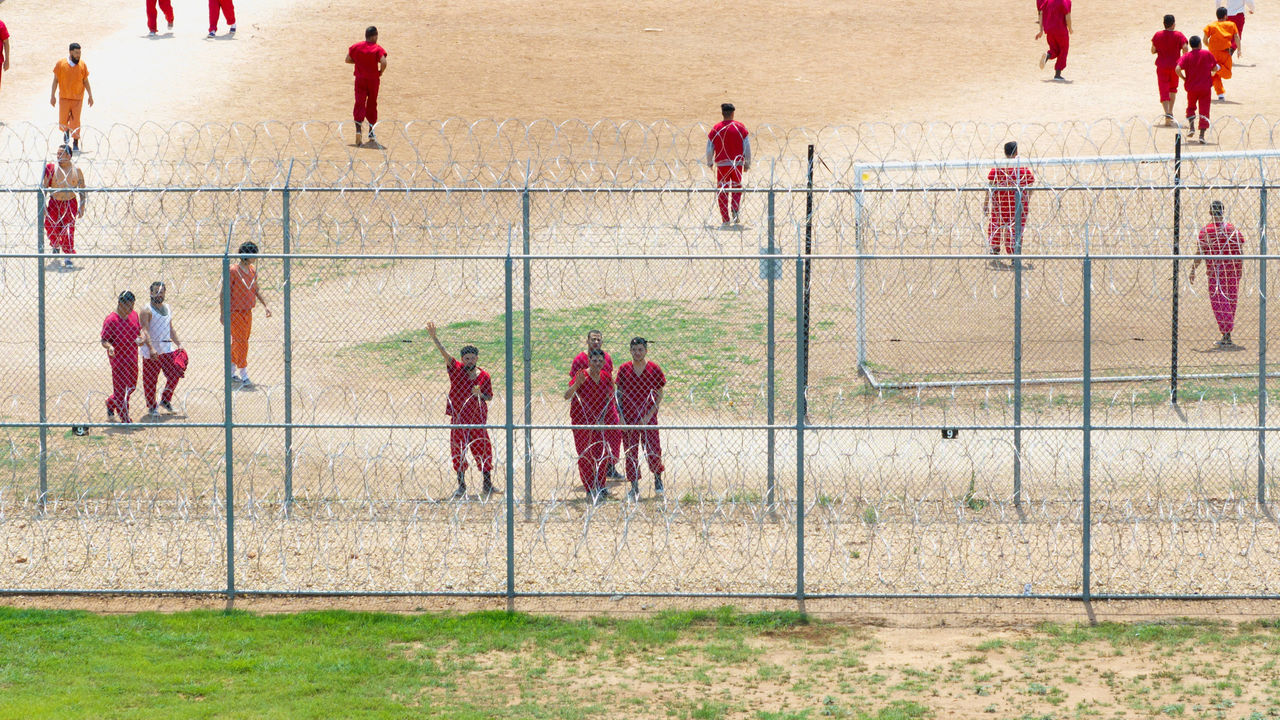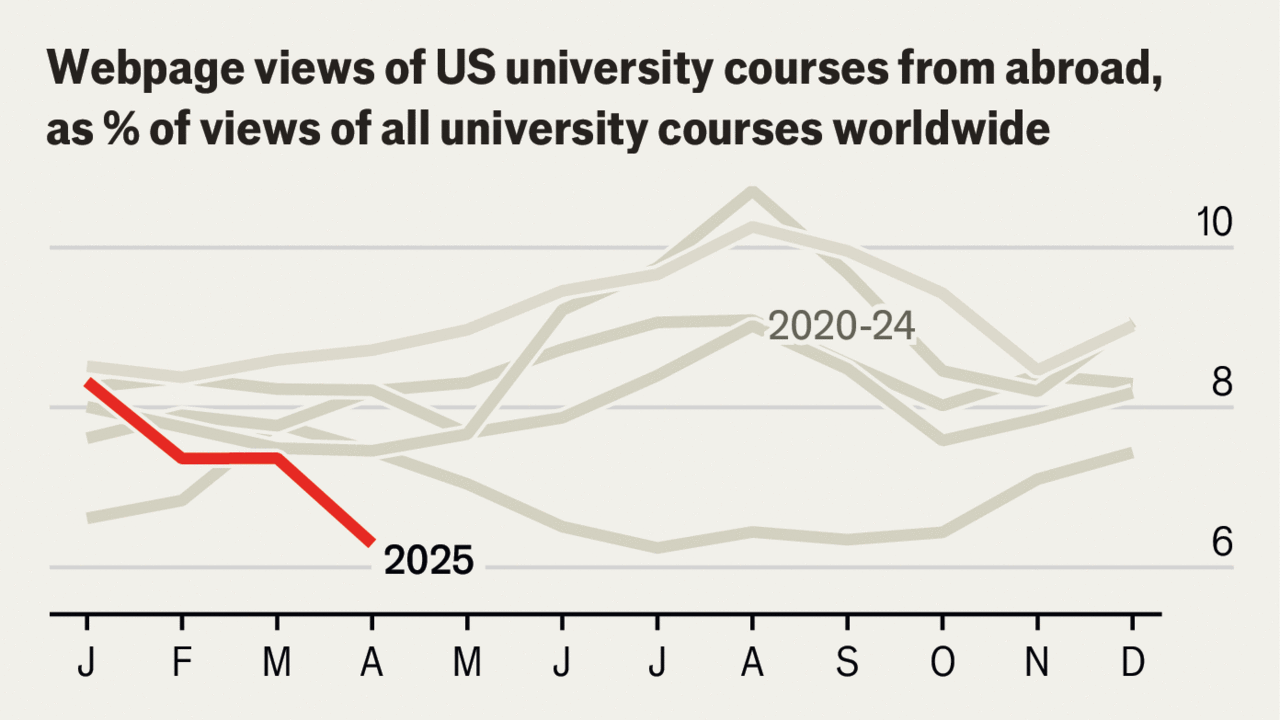The European Central Bank is expected to cut interest rates for the second time this year at its Thursday meeting, but disagreement among policymakers may be set to increase amid tariff uncertainty and a potential ramp-up in regional defense spending.
Markets had on Wednesday fully priced in a quarter-point rate cut for the March meeting, taking the ECB’s key rate to 2.5% — down from its peak of 4% in the middle of last year. A further reduction to 2% by the end of the year was also priced in.
A relatively swift pace of monetary easing has been expected over the last nine months, with euro zone headline inflation coming in consistently below 3%, and economic growth remaining weak. The ECB’s Governing Council has almost always made its decisions unanimously and provided relatively firm guidance of its next steps to guide market expectations.
However, the central bank now appears within touching distance of the hotly-debated “neutral rate” at which policy is neither stimulating nor restricting the economy, when rates would be expected to be kept on hold. Policymakers disagree on exactly where this level is, and whether rates might need to be brought even lower than that level in response to factors such as low growth.
ECB President Christine Lagarde told CNBC in January she believed the range was between 1.75% and 2.25%, down from her previous estimate of between 1.75% and 2.5% — but the ECB itself has not issued a firmer indication since.
Bank of America Global Research analysts said in a Wednesday note that following this week’s meeting they expected increased internal dispute between policymakers.
“This is the last ‘easy’ rate cut in our views, as disagreements grow,” they said. However, they reiterated a view ahead of market expectations for the ECB to slash rates to 1.5% by September.
“The debate among ECB policymakers has picked up over recent weeks,” noted Goldman Sachs analysts, who said they expected the voting Governing Council to focus on whether broad financial conditions, bank lending conditions, business reports and lending indicate rates are still restrictive.
Spending hike
The outlook is meanwhile clouded by a host of factors causing a stir in markets and the economy. The ECB staff macroeconomic projections on inflation and growth that will be released Thursday will therefore be closely-watched, but may be taken with a pinch of salt.
The U.S. has launched tariffs on its biggest trading partners which are expected to cause a slowdown in global sectors including automotives — but the duties might yet be pared back. U.S. President Donald Trump has said the European Union will be next in-line for high duties — however, the prospect of a negotiation also remains in play. The impact of such tariffs would also be uncertain, with a slowdown in trade dragging on economic activity, but also potentially weighing on the euro, raising the cost of imports.
European governments are meanwhile gearing up to hike spending on defense as relations with the U.S. over the Ukraine war fracture.
Lagarde is likely to be questioned on the potential impact of the deal announced this week in Germany between the country’s expected next coalition partners. An agreement on reforming German debt rules has not yet been finalized, but is expected to unlock up to a trillion euros in spending on defense and infrastructure, with the euro sharply rallying on the news Wednesday.
Analysts at Rabobank said euro gains were “in part due to expectations that room for further ECB rates cuts will be more confined,” with the reforms and higher spending bringing the “promise of an uplift in economic growth.”
A broader move toward European rearmament would represent “a debt-financed fiscal expansion that would spur economic activity, allow some reflation, and cause the ECB to reconsider the extent of its policy rate cuts going forward,” Thierry Wizman, global FX and rates strategist at Macquarie, said Tuesday.
Still restrictive?
Despite all of this uncertainty, some analysts do not expect the ECB to significantly update its guidance on Thursday, which in January stressed that inflation was expected to converge toward target, monetary policy remains restrictive, and that the central bank will continue its data-dependent approach.
A particular focus will be on whether it alters the message that policy is “restrictive,” and whether there is a suggestion that a rate hold may be coming at the next meeting in April.
“Given the unusual uncertainty created by the ongoing political and geopolitical developments, we expect the Governing Council of the ECB to be driven this week by a desire to maximise optionality about subsequent moves,” Citi analysts said Wednesday.
“We think this may translate into a more cautious communication, no longer asserting that monetary policy is restrictive. We would not read this as a sign that a pause in the easing process is forthcoming, however. Shifting geopolitics may eventually generate reflationary fiscal policies, but in the near term, they will likely increase the argument for monetary easing.”

 Accounting1 week ago
Accounting1 week ago
 Economics1 week ago
Economics1 week ago
 Personal Finance1 week ago
Personal Finance1 week ago
 Accounting1 week ago
Accounting1 week ago
 Finance7 days ago
Finance7 days ago
 Economics1 week ago
Economics1 week ago
 Economics1 week ago
Economics1 week ago
 Economics1 week ago
Economics1 week ago






















